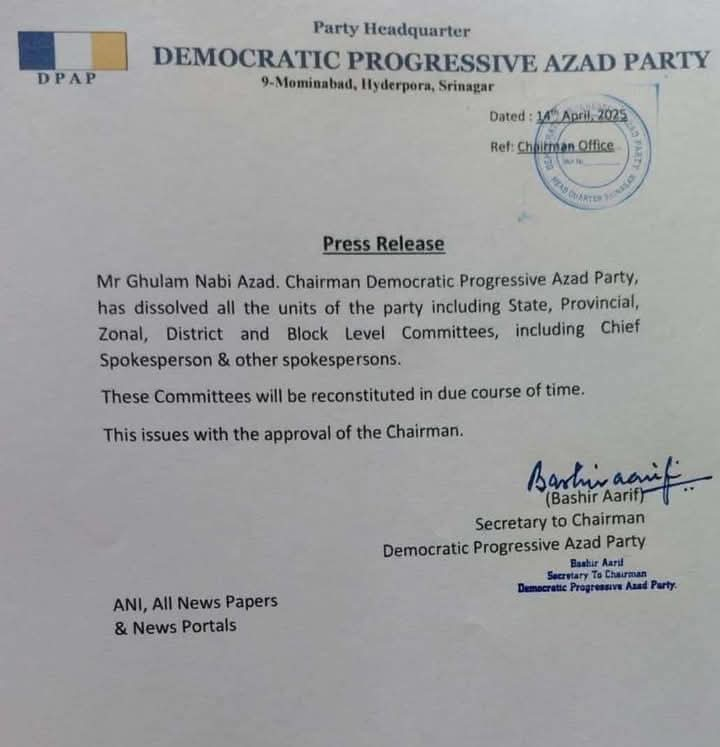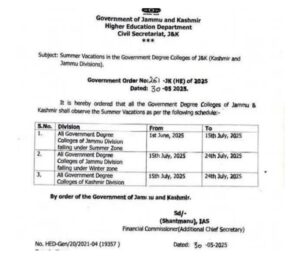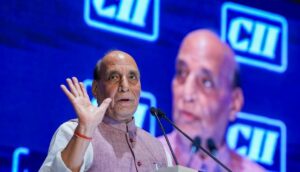Ghulam Nabi Azad Dissolves Democratic Progressive Azad Party Units: Sparks Speculation of Political Realignment

Srinagar, April 14, 2025: In a surprising political development, Ghulam Nabi Azad, Chairman of the Democratic Progressive Azad Party (DPAP), has dissolved all party units, including state, provincial, zonal, district, and block-level committees, along with the panel of spokespersons. This move, announced late on April 13, 2025, has fueled widespread speculation about Azad’s next political steps, with rumors suggesting a possible return to the Indian National Congress (INC) or an appointment as Chairman of the National Commission for Minorities in India.
Azad, a veteran politician and former Chief Minister of Jammu and Kashmir, formed the DPAP in September 2022 after parting ways with the Congress, where he had spent nearly five decades. The dissolution of DPAP’s organizational structure comes months after the party’s lackluster performance in the 2024 Jammu and Kashmir Assembly elections, where it failed to secure significant electoral success. Political analysts view this as a potential signal that Azad may be rethinking his political strategy.
Sources close to Azad have remained tight-lipped about his intentions, but posts circulating on X and reports in regional media suggest two possible paths. One is a return to the Congress, a party he left citing differences with its leadership. In August 2024, DPAP’s chief spokesperson, Salman Nizami, had dismissed similar rumors of Azad rejoining Congress as “propaganda,” but the latest development has reignited such speculation. A reconciliation with Congress could bolster the party’s influence in Jammu and Kashmir, leveraging Azad’s extensive political experience and regional clout.
Alternatively, there is talk that Azad could be considered for a significant role at the national level, such as Chairman of the National Commission for Minorities. His long-standing advocacy for marginalized communities and his tenure as a Union Minister in multiple Congress-led governments make him a strong candidate for such a position. However, no official confirmation has emerged regarding either possibility.
The dissolution of DPAP units has left party workers in a state of uncertainty. Some see it as a pragmatic move to streamline operations, while others fear it signals the end of DPAP as a viable political entity. “Azad sahab has always been a strategist. This could be a step toward something bigger, but only time will tell,” said a former DPAP functionary, requesting anonymity.
Azad’s political journey has been marked by resilience and adaptability. A key Congress troubleshooter for decades, he served as Leader of Opposition in the Rajya Sabha and held portfolios like Health and Parliamentary Affairs. His exit from Congress in 2022 was a blow to the party, particularly in Jammu and Kashmir, where he commanded significant goodwill. Whether he chooses to return to his political roots or takes on a new role, Azad’s next move will likely have far-reaching implications for the region’s political landscape.
For now, the veteran leader remains silent, leaving observers to parse his intentions. As Jammu and Kashmir navigates a complex political phase post-Article 370 abrogation, Ghulam Nabi Azad’s decision could reshape alliances and influence the state’s future trajectory.





